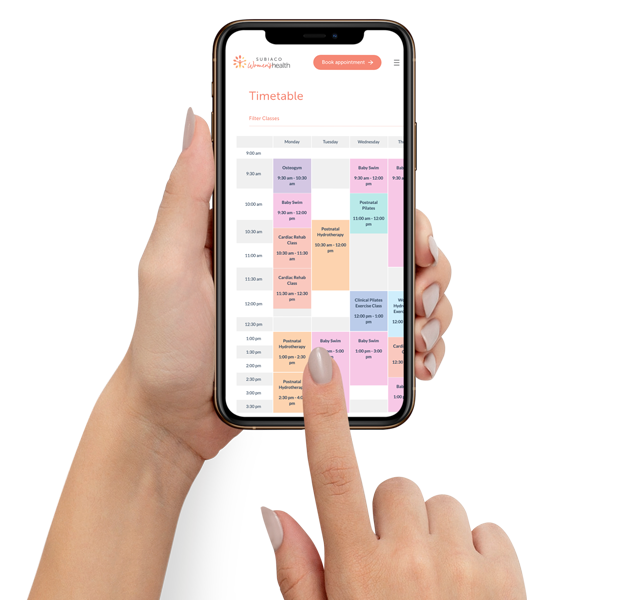Kayla has completed the Master of Clinical Physiotherapy at Curtin University, specialising in Continence and Pelvic Health. She has over 10 years clinical experience and has worked in a range of settings across WA, Melbourne and the UK.
Throughout her career, Kayla has worked in a range of prestigious institutions, including the Royal Women’s Hospital, the Australian Prostate Centre, and the Australian Institute of Sexology and Sexual Medicine. These roles have provided her with a unique and diverse perspective on pelvic health, enabling her to treat a wide variety of conditions and offer tailored care for individuals of all ages and backgrounds.
With a compassionate and patient-centred approach, Kayla strives to empower her patients to take an active role in their recovery. She is deeply passionate about helping individuals achieve optimal pelvic health, regain control over their bodies and achieve their health goals wherever they are in their journey. Her approach combines manual therapy, exercise rehabilitation and education to empower her patients and improve their quality of life.
Kayla provides both inpatient maternity care and outpatient pelvic health appointments. She has a strong clinical interest in, and is dedicated to providing evidence-based, compassionate care to patients with persistent pelvic pain, working closely with multidisciplinary teams to deliver holistic and individualised treatment plans. She also has sound experience in providing perinatal care, including return to exercise assessments, treatment for breastfeeding issues, rectus abdominus diastasis and musculoskeletal pain. Kayla also provides treatment for a range of men’s pelvic health conditions, particularly pre and post prostate cancer treatments.
Outside of work, Kayla enjoys eating out with family and friends, spending time at the beach and hiking in the great outdoors.
Qualifications & Experience
- Master of Clinical Physiotherapy – Continence and Pelvic Health Major
- Bachelor of Physiotherapy
Clinical Interests
- Persistent pelvic pain conditions
- Antenatal and postnatal care
- Women’s and Men’s Pelvic Health
Gladly accepting referrals for
- Persistent pelvic pain conditions
- Sexual pain and dysfunction
- Pregnancy and post-natal musculoskeletal conditions
- Rectus abdominis diastasis
- Breast treatment for cracked nipples, blocked ducts and mastitis
- Urinary and faecal incontinence
- Constipation
- Overactive bladder
- Pelvic organ prolapse
- Pre and post prostatectomy care












